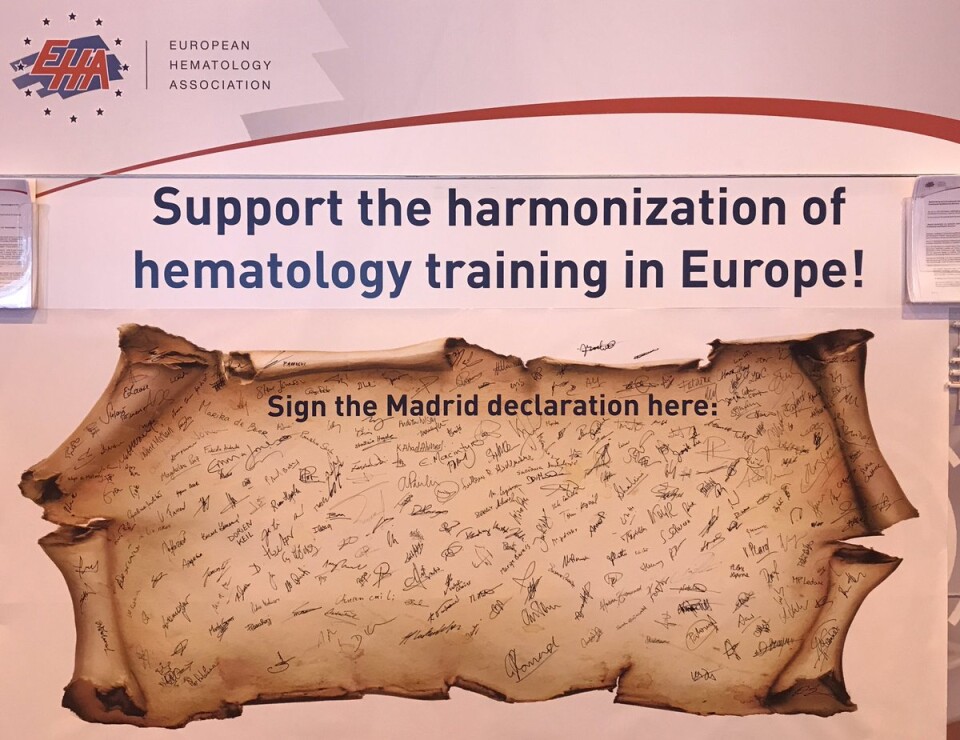Madrid Declaration: joint call for action on training requirements

The Madrid Declaration on enhanced training requirements for hematologists in the Professional Qualifications Directive enjoyed broad support from national society representatives at the EHA22 National Societies Dinner in Madrid. Drafted by EHA and co-signed by hematology societies in EU Member States, the declaration calls for increasing the minimum length of hematology training and harmonization of training requirements across Europe.
In a discipline as dynamic and innovative as hematology, research and patient care are internationalizing fast, and the skills and the level of knowledge required of professionals are increasing at a continuous pace. Yet the minimum length of training is under pressure in several EU Member States, and cross-border harmonization is hampered by persistent differences in the length and content of training programs.
The Madrid Declaration therefore calls upon the European Commission to increase the minimum training period required for the automatic cross-border recognition of hematologists, as specified in the Professional Qualifications Directive (see below), from three to five years.
The declaration also urges Member State authorities to adopt the five-year minimum at the national level, and encourages the responsible health and education bodies in each country to base national hematology training programs on the European Hematology Curriculum. Even as the design of training programs remains a national competency, and while national traditions and circumstances need to be taken into account, EHA and national hematology societies believe that enhancing and harmonizing the minimum training requirements is imperative – both for high-quality patient care and for optimal professional mobility.
The Madrid Declaration has now been co-signed by the national societies in 24 out of 28 EU Member States. It has also been endorsed by the Haematology Nurses & Healthcare Professionals Group (HNHCP) and several patient organizations.
About the EU’s Professional Qualifications Directive:
Directive 2005/36/EC (amended by directive 2013/55/EU), known as the ‘Professional Qualifications Directive’ (PQD), was designed to regulate the recognition of professional qualifications and improve the cross-border mobility of professionals. The PQD applies only to certain regulated professions in EU Member States including doctors (GPs and specialists), nurses and pharmacists. It sets rules on professional mobility, recognition of qualifications, language requirements and academic titles.
Automatic recognition of medical specialist qualifications is possible (only) if:
- the specialty is listed in the PQD’s Annex V, point 5.1.3 (the European Commission can add specialties common to at least two-fifths of Member States);
- the destination Member State has opted in by listing its own specialty training title in the Annex V; this is possible only if the length of the specialty training meets the minimum specified in the Annex V.



 Back
Back